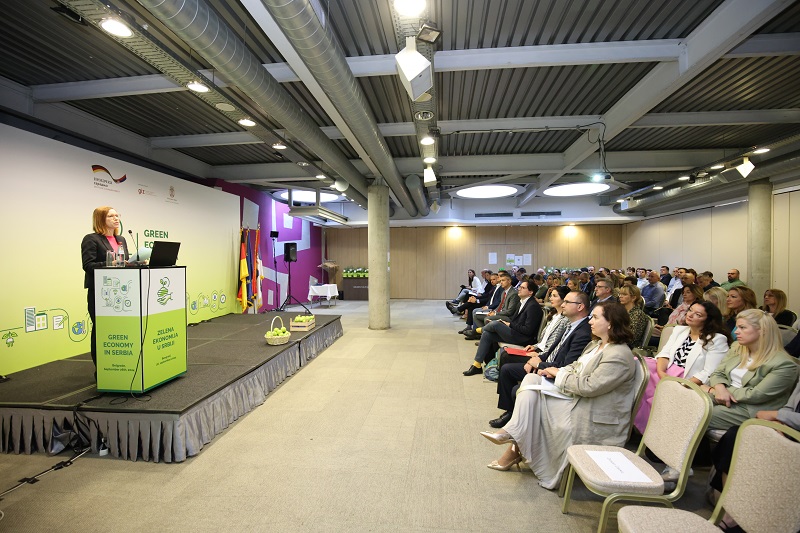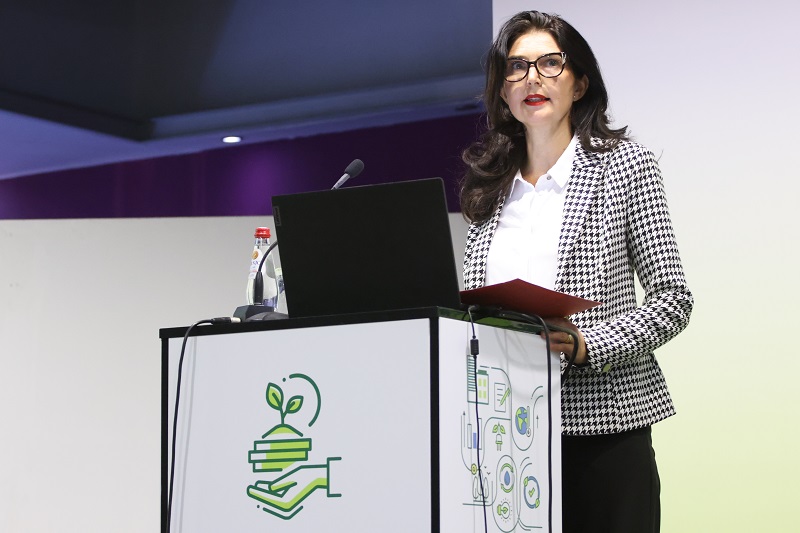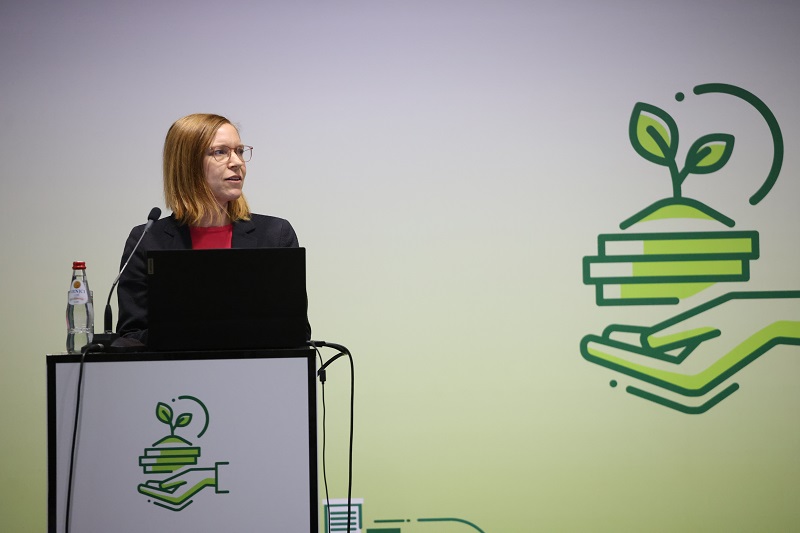Direct financial assistance and support in harnessing the potential of the green economy through improving the business framework and capacity building was announced for domestic micro, small, and medium enterprises at the first conference of the “Green Economy in Serbia” project.

This project is financed by the German Federal Ministry for Economic Cooperation and Development (BMZ) and implemented by Deutsche Gesellschaft für Internationale Zusammenarbeit (GIZ) GmbH, in partnership with the Ministry of Economy and the Chamber of Commerce of Serbia. Micro, small, and medium enterprises make up 99% of Serbian businesses, and this project encourages and motivates them to adapt their business models and processes to the principles of the green and circular economy, creating innovative products and services for the global market, to decarbonise the economy and protect the environment.
State Secretary in the Ministry of Economy of the Republic of Serbia, Andrea Horvat Kiralj, expressed her belief that the “Green Economy in Serbia” project will be another example of the longstanding successful cooperation between Serbia and Germany.
The German-funded project will help Serbian micro, small, and medium enterprises align with green economy principles to enhance global competitiveness and sustainability
“Following the vision of becoming a regional leader in green economy implementation, Serbia has already embedded principles in its most important strategic documents related to the economy, industry, and the development of micro, small, and medium enterprises. Aligning with environmental business requirements, reducing greenhouse gas emissions, using renewable energy sources, improving energy efficiency and resource use, reducing air, water, and land pollution, and promoting circular economy – these are now relevant topics for every enterprise in Serbia, due both to the immediate impact of rising energy costs and the necessity to meet the demands of the European Union market, with which many domestic enterprises operate directly or indirectly,” said Horvat Kiralj, calling on representatives of the business community, academia, and civil society to contribute to Serbia’s transition to a green economy.

Judit Hofman, Head of the Economic Cooperation Department at the Embassy of the Federal Republic of Germany in Serbia, reminded the audience that by signing the Green Economy Declaration in 2020, Serbia became part of the Green Agenda for the Western Balkans and noted that the transition to a green economy is a prerequisite for competitiveness in the European market.
“The transition to a green economy, while challenging, also offers opportunities to develop new products and sustainable, climate-neutral business models and practices. With its significant experience in this area, Germany is ready to offer micro, small, and medium enterprises applicable advice, education, and training related to the green economy. We will support institutions such as the Chamber of Commerce of Serbia in implementing environmental protection measures and encourage dialogue between decision-makers, NGOs, and other relevant stakeholders. Through the ‘Green Economy in Serbia’ project, we will select micro, small, and medium enterprises in certain key sectors to provide them with concrete support, paying particular attention to female entrepreneurs and other groups that may face challenges due to the transition to a green economy,” said Judit Hofman.

This project will be implemented until the end of 2026. It will focus on small and medium manufacturing enterprises and micro-enterprises in agriculture and tourism, especially those led by women, to improve their competitiveness and enable their integration into international supply chains.